Related Research Articles

Forgotten Futures is a role-playing game created by Marcus Rowland to allow people to play in settings inspired by Victorian and Edwardian science fiction and fantasy. Most of its releases begin with these stories then add background material to explain the settings, adventures, and other game material.

Fudge is a generic role-playing game system for use in freeform role-playing games. The name "FUDGE" was once an acronym for Freeform Universal DonatedGaming Engine and, though the acronym has since been dropped, that phrase remains a good summation of the game's design goals. Fudge has been nominated for an Origins Award for Best Role-Playing Game System for the Deryni Adventure Game.

The Generic Universal RolePlaying System, or GURPS, is a tabletop role-playing game system designed to allow for play in any game setting. It was created by Steve Jackson Games and first published in 1986 at a time when most such systems were story- or genre-specific.

RuneQuest is a fantasy tabletop role-playing game originally designed by Steve Perrin, Ray Turney, Steve Henderson, and Warren James, and set in Greg Stafford's mythical world of Glorantha. It was first published in 1978 by The Chaosium. Beginning in 1984, publication passed between a number of companies, including Avalon Hill, Mongoose Publishing, and The Design Mechanism, before finally returning to Chaosium in 2016. RuneQuest is notable for its system, designed around percentile dice and an early implementation of skill rules, which became the basis for numerous other games. There have been several editions of the game.
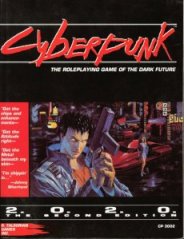
Cyberpunk is a tabletop role-playing game in the dystopian science fiction genre, written by Mike Pondsmith and first published by R. Talsorian Games in 1988. It is typically referred to by its second or fourth edition names, Cyberpunk 2020 and Cyberpunk Red, in order to distinguish it from the cyberpunk genre after which it is named.
Open gaming is a movement within the tabletop role-playing game (RPG) industry with superficial similarities to the open source software movement. The key aspect is that copyright holders license their works under public copyright licenses that permit others to make copies or create derivative works of the game.

Alternity is a science fiction role-playing game (RPG) published by TSR in 1998. Following the acquisition of TSR by Wizards of the Coast, the game was discontinued in 2000 as part of a broader rationalisation of TSR's business holdings, but it retains a small and devoted fanbase. Parts of Alternity as well as TSR's classic Star Frontiers game have been incorporated into the d20 Modern game, especially the d20 Future setting. The first campaign setting for the Alternity game, the Star*Drive setting, was introduced in 1998.

Fate is a generic role-playing game system based on the Fudge gaming system. It has no fixed setting, traits, or genre and is customizable. It is designed to offer minimal obstruction to role-playing by assuming players want to make fewer dice rolls.
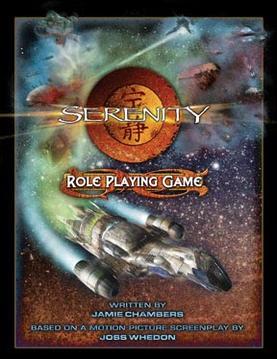
The Serenity Role Playing Game is a science fiction role-playing game released in 2005 and set in the universe of the movie Serenity. It was produced by Margaret Weis Productions, Ltd, and its mechanics were the first iteration of the Cortex System. It won an Origins Award for best RPG in 2005 and Margaret Weis' license came to an end on January 31, 2011.

Savage Worlds is a role-playing game written by Shane Lacy Hensley and published by Pinnacle Entertainment Group. The game emphasizes speed of play and reduced preparation over realism or detail. The game received the 2003 Origin Gamers' Choice Award for best role-playing game.
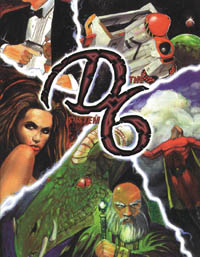
The D6 System is a role-playing game system published by West End Games (WEG) and licensees. While the system is primarily intended for pen-and-paper role-playing games, variations of the system have also been used in live action role-playing games and miniature battle games. The system is named after the 6-sided die, which is used in every roll required by the system.
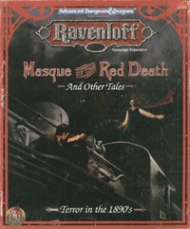
Masque of the Red Death and Other Tales, subtitled "Terror in the 1890s", was published by TSR in 1994 as an alternate campaign setting for the horror role-playing game Ravenloft, which itself uses the rules from Advanced Dungeons & Dragons.

Starfleet Voyages is a science-fiction adventure role-playing game of planetary exploration based on the Star Trek television series.

True20 is a role-playing game system designed by Steve Kenson and published by Green Ronin Publishing. The system was first published as a part of the Blue Rose RPG before being published as a standalone universal generic role-playing game, True20 Adventure Roleplaying.
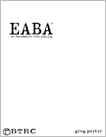
The End All Be All game system, commonly known as EABA and pronounced "ee-buh", is a role-playing game system from Blacksburg Tactical Research Center (BTRC). It is a generic gaming system designed to adapt to any imaginary gaming environment. It was created by Greg Porter in 2003. The game cites the Hero System, GURPS and Call of Cthulhu as influences in its development.

The CORPS game system, created by Greg Porter was in its first 1990 edition the Conspiracy Oriented Roleplaying System, which was later revised and re-named the Complete Omniversal Role Playing System to focus purely on being a generic role-playing game system.
Dungeon Squad is a fantasy role-playing game by Jason Morningstar. It is released as being 'by Jason Morningstar', rather than through Bully Pulpit Games as other of Morningstar's games have been.

QAGS is a generic tabletop roleplaying game. Setting for this system have varied and ranged widely.
The Cortex Plus System is a toolkit RPG system that evolved from Margaret Weis Productions, Ltd's Cortex System. It has been used for four published games and one published preview to date, and the design principles are in the Cortex Plus Hacker's Guide, a book of advice in how to create new games using Cortex Plus, and list of new games produced via Kickstarter. According to the Hacker's Guide there are three basic 'flavors' of Cortex Plus; Action, Drama, and Heroic.
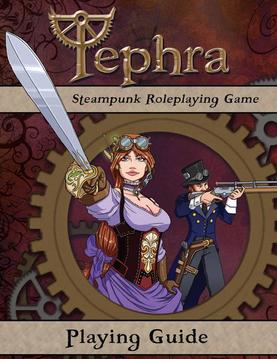
Tephra: The Steampunk RPG (2012) is a steampunk role-playing game by Parlor LLC..
References
- ↑ John Munsch, "Making Sure An Open Source RPG Stays Available": "Dreams of a Rarebit Fiend: Making Sure an Open Source RPG Stays Available". Archived from the original on 2008-06-25. Retrieved 2008-05-09.
- ↑ See "The Dominion Games Interview" (November 2000) at http://www.guildcompanion.com/scrolls/2000/nov/dginterview.html Archived 2010-11-09 at the Wayback Machine
- ↑ "Dominion Rules 2.0" (game review) at http://www.guildcompanion.com/scrolls/2001/dec/reviewdominionrules2.html Archived 2019-11-28 at the Wayback Machine
- ↑ See, for example, "Review of Dominion Rules Digest 2.0": http://www.rpg.net/reviews/archive/9/9525.phtml
- ↑ See, for example, "Dominion Rules by MAB": http://thefreerpgblog.blogspot.com/2008/11/dominion-rules-by-mab.html